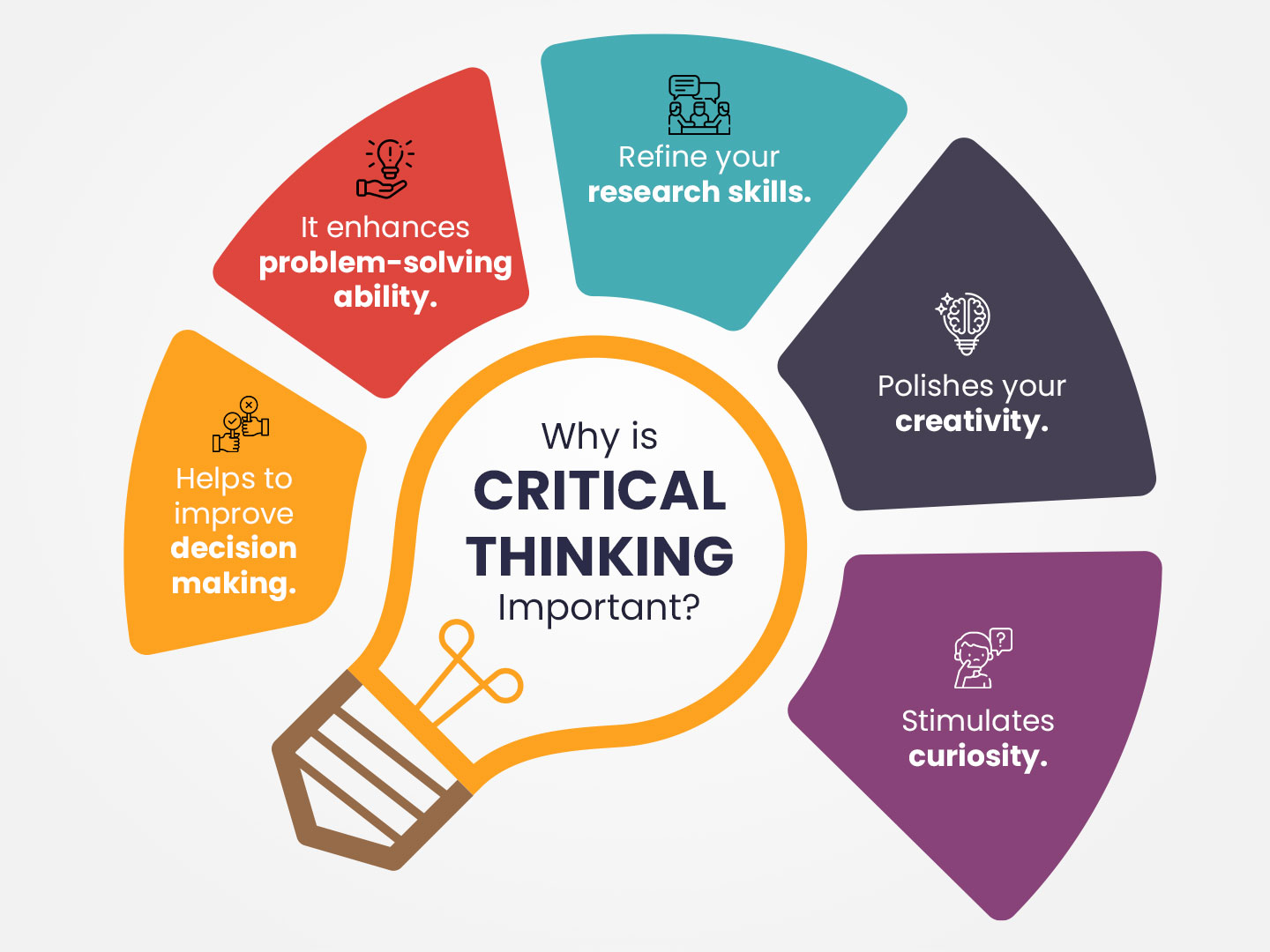Unleashing Creativity: Why Critical Thinking Skills Matter in School
In today's busy and information-rich world, the ability to be able to think critically is definitely more essential than in the past for students. Critical thinking skills certainly not only enhance academics performance and also enable young individuals to navigate complex problems plus make informed choices. As educators and oldsters strive to cultivate well-rounded learners, knowing the essential essential thinking skills each student needs turns into a vital focus. From questioning presumptions to conducting comprehensive analyses, equipping college students with these skills prepares them regarding success both within and outside typically the classroom.
Recognizing strong important thinkers in the school setting may be a challenge, yet it will be crucial for cultivating a culture involving intellectual curiosity and even innovation. Students that exhibit effective traits of critical thinking—such as independent thought, logical reasoning, and even the ability to be able to challenge biases—are far better positioned to flourish in a increasingly complicated society. As we all delve deeper directly into what constitutes strong critical thinking, all of us will explore essential traits, effective educating strategies, and useful evaluations that will help students not necessarily only think artistically but also approach problem-solving with assurance and clarity.
Essential Critical Thinking Skills
To succeed scholastically and in lifestyle, students need to cultivate a selection of critical thinking skills. These expertise enable them to analyze information, fix problems, and make informed decisions. At read this involving effective critical considering is the capacity to assess arguments, identify biases, and differentiate between facts and even opinions. Strong critical thinkers can recognize logical reasoning in addition to apply it to formulate their individual viewpoints, letting them participate in meaningful talks and debates.
Moreover, interest plays an important role in critical thinking. Encouraging college students might questions in addition to seek deeper understanding fosters an surroundings where exploration and inquiry thrive. This particular inquisitiveness is associated to a determination to challenge presumptions and think separately. When students learn how to evaluate their own reasoning processes, they will become more adept at recognizing the strongest and weakest points in their disputes and the ones of other folks.
Following, reflection and self-assessment are vital elements of developing crucial thinking skills. By simply regularly engaging inside these practices, college students can enhance their very own ability to think critically and creatively. This means considering their thought techniques, understanding their mental responses, and discovering any logical fallacies that may arise in their reasoning. In the end, these essential crucial thinking skills not really only improve academic performance but furthermore prepare students intended for real-world challenges.
Identifying Sturdy Critical Thinkers
Recognizing solid critical thinkers in the classroom consists of observing specific manners and thought procedures. critical thinking in education make an effort to engage with material, asking questions that demonstrate a deep understanding of concepts. Visit This Link are not scared to challenge assumptions and seek filtration. Are they ready to explore substitute viewpoints? This willingness to embrace talks and entertain different perspectives is a trademark of critical thinking.
An additional key indicator of critical thinking skills is a student’s ability to assess information critically. This includes discerning simple fact from opinion and identifying biases certainly not only in others’ arguments but in their reasoning as well. Strong important thinkers are good at recognizing logical disparity and fallacies, allowing them to produce well-supported arguments. Their very own skill in evaluating sources for reliability increases their capacity to make advised decisions depending on audio reasoning.
Finally, the emotional aspect of reasoning plays an essential role in discovering effective critical thinkers. Students who can certainly separate their emotions from their analyses tend to participate in more target reasoning. They recognize that while thoughts are valid, they have to be balanced with logic. Assessing just how students handle emotional responses in talks can shed light on their capability to think vitally and creatively. These traits combined produce a robust profile of any student who exemplifies strong critical thinking skills.

The Impact involving Critical Thinking in Student Success
Critical pondering plays an important role in improving student success both academically and individually. Students equipped using strong critical thinking skills are better willing to analyze data, evaluate arguments, in addition to make reasoned choices. This ability not only reflects within their grades but also fosters a deeper comprehension of the material being studied. Seeing that they engage extra thoroughly with information, they become active learners, moving further than rote memorization in order to applying concepts inside of meaningful ways.
Moreover, important thinking encourages pupils to approach challenges with confidence and creativity. By evaluating numerous perspectives and embracing skepticism, students find out to tackle issues systematically. This attitude prepares them regarding real-world scenarios in which innovation and flexibility are essential. As they cultivate decision-making skills, pupils become adept in identifying the ideal courses of action, leading to productive outcomes in both academic projects plus life challenges.
Finally, promoting a culture of critical thinking in the classroom stimulates collaboration and interaction among peers. Students discover how to articulate their own thoughts, defend their particular viewpoints, and respectfully consider opposing ideas. This exchange regarding ideas not simply sharpens their reasoning abilities but also increases their interpersonal skills, equipping them regarding future teamwork and leadership roles. Eventually, the integration regarding critical thinking in to education lays a solid foundation for lifelong learning and achievement.